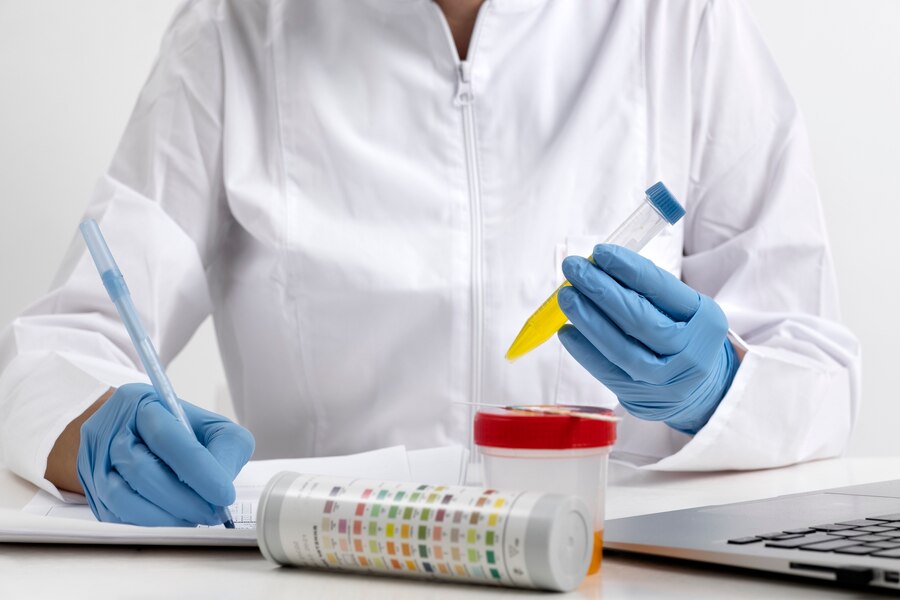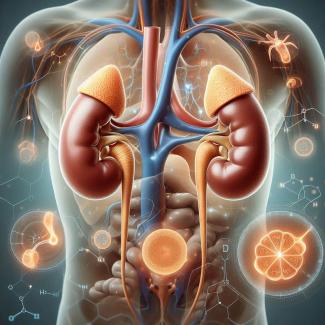
The presence of blood in urine, a condition known as hematuria, can occur for a variety of reasons, ranging from benign to potentially serious. Hematuria can manifest as either gross hematuria (visible blood in the urine, giving it a pink, red, or brownish color) or microscopic hematuria (only detectable under a microscope). Here are some of the common causes of hematuria:
- Urinary Tract Infections (UTIs): UTIs can cause inflammation of the urinary tract lining, leading to blood in the urine. This is usually accompanied by other symptoms such as frequent urination, burning sensation during urination, and lower abdominal pain.
- Kidney Stones: The passing of kidney stones through the urinary tract can cause damage to the urinary tract lining, resulting in hematuria. Kidney stones can be very painful and are often associated with flank or lower back pain.
- Bladder or Kidney Infections: Infections in the bladder (cystitis) or kidneys (pyelonephritis) can lead to inflammation and blood in the urine.
- Trauma or Injury: Physical injury to the urinary tract, such as a blow to the kidney, can result in hematuria. This can be due to damage to blood vessels or tissues in the area.
- Strenuous Exercise: Intense exercise, like long-distance running, can occasionally lead to the release of small amounts of blood in the urine. This is typically not a cause for concern and usually resolves on its own.
- Medications: Some medications, like certain blood thinners, can increase the risk of bleeding and result in hematuria.
- Enlarged Prostate: In men, an enlarged prostate (benign prostatic hyperplasia) can cause urinary symptoms, including hematuria.
- Bladder or Kidney Stones: The presence of stones in the bladder or kidneys can cause irritation and bleeding.
- Cancer: Hematuria can be a sign of urinary tract cancers, including bladder, kidney, or prostate cancer. Although relatively rare, it's essential to investigate unexplained hematuria, especially in older individuals.
- Inherited or Systemic Conditions: Conditions like sickle cell anemia or certain blood clotting disorders can lead to hematuria.
- Other Kidney Conditions: Inflammatory conditions like glomerulonephritis and certain autoimmune diseases can affect the kidneys and lead to blood in the urine.
If you or someone you know is experiencing hematuria, it's crucial to consult a healthcare professional for a proper evaluation. The evaluation typically involves a thorough medical history, physical examination, and diagnostic tests such as urine analysis, blood tests, imaging (e.g., ultrasound, CT scan), and possibly a cystoscopy (a procedure to examine the inside of the bladder). The cause of hematuria will determine the appropriate treatment or further investigation, which could include a referral to a urologist or nephrologist for specialized care. Early detection and treatment of underlying conditions are crucial to ensure the best possible outcome.
Triplat (Greek hay) and its health benefits
Triplat, also known as Greek hay or fenugreek, is a medicinal plant with a long history of use in traditional medicine. Its scientific name is Trigonella foenum-graecum. Fenugreek seeds and leaves are commonly used in cooking and herbal medicine due to their rich content of active ingredients and numerous health benefits.
Active Ingredients in Triplat (Fenugreek)
Fenugreek is packed with a variety of bioactive compounds, including:
Magnesium: What are the first signs of magnesium deficiency? How do I know if I have a magnesium deficiency?
Magnesium is an essential mineral that plays a crucial role in various bodily functions, including muscle and nerve function, blood glucose control, and bone health. A magnesium deficiency can lead to a range of symptoms and health issues. Here are some of the first signs of magnesium deficiency and the tests that can help diagnose it:
Signs of Magnesium Deficiency:
EPA is one of the important omega-3 fatty acids
Eicosapentaenoic acid (EPA) is one of the essential omega-3 fatty acids, which means that it must be obtained through your diet since the human body cannot synthesize it on its own. EPA is crucial for various biological functions and offers many health benefits. Here is a detailed description of how you can get EPA:
The best natural laxatives
Natural laxatives are substances that can help promote regular bowel movements and relieve constipation. It's important to consult with a healthcare professional before using any laxative, even natural ones, as they may not be suitable for everyone, and chronic constipation should be evaluated by a doctor to rule out underlying medical conditions. That said, here are some of the best natural laxatives:
Adrenal Glands
The adrenal glands, also known as suprarenal glands, are a pair of small, triangular-shaped endocrine glands located on top of each kidney. These glands play a crucial role in regulating various physiological processes in the body by producing and releasing several hormones. The adrenal glands are divided into two main regions, each responsible for producing specific hormones:








